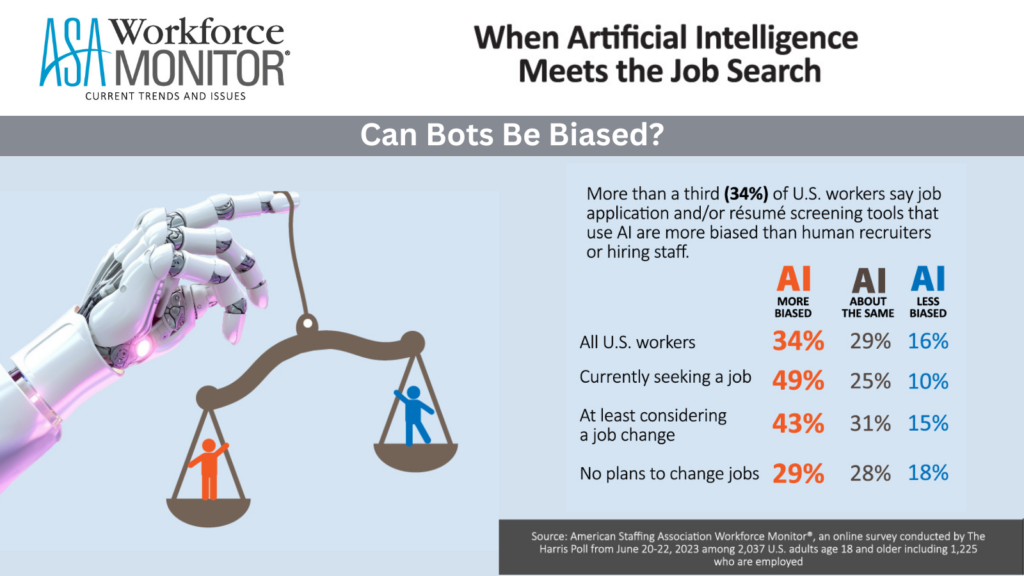Nearly half of employed U.S. job seekers (49%) believe artificial intelligence (AI) tools used in job recruiting are more biased than their human counterparts, according to a new survey by the American Staffing Association and The Harris Poll.

The skepticism is higher among individuals actively involved in the job-seeking process. Among those who are at least considering a new job, 43% believe AI recruiting tools are more biased than humans, compared to just 29% of those with no immediate plans for a job change.
The survey also found that 39% of current job seekers have used AI tools to assist in applying for a job. Usage varies based on race/ethnicity among U.S. residents, with 36% of Hispanic and 34% of Black U.S. adults saying they have used AI when applying for a job, compared to only 17% of White Americans.
The findings come just weeks after the Equal Employment Opportunity Commission released guidance on how to incorporate AI into a job search while still adhering to the Civil Rights Act of 1964 and the Americans with Disabilities Act. The guidance acknowledged that AI tools can be biased, and it urged employers to take steps to mitigate that bias.
The survey’s authors said the results suggest that there is a need for more transparency and accountability around the use of AI in job recruiting. They also called for more research into the potential biases of AI tools.
“The findings of this survey are a wake-up call for employers,” said Betsy Zeller, CEO of the American Staffing Association. “They need to be aware of the potential for bias in AI tools and take steps to mitigate it.”
The survey was conducted online among a representative sample of 1,000 employed U.S. adults ages 18 and over. The margin of error is plus or minus 3.1 percentage points.
Here are some additional thoughts on the story:
- The use of AI in job recruiting is a growing trend, and it is important to be aware of the potential for bias in these tools.
- Employers should take steps to mitigate bias in AI tools, such as by using multiple tools and by having humans review the results of AI-driven decisions.
- More research is needed to understand the potential biases of AI tools.
- Job seekers should be aware of the potential for bias in AI tools and should be prepared to challenge any decisions that they believe are unfair.
“Job seekers may feel comfortable using artificial intelligence tools in their job search, but that does not equate to trusting AI to make fair hiring decisions,” said ASA chief executive officer Richard Wahlquist. “As AI tools become more widely deployed, it’s critical that hiring managers work to increase transparency and accountability in their hiring processes and use tools that meet current and emerging antibias standards. It’s also critically important that policymakers and technologists thoughtfully consider measures intended to lower bias in AI hiring systems.”
